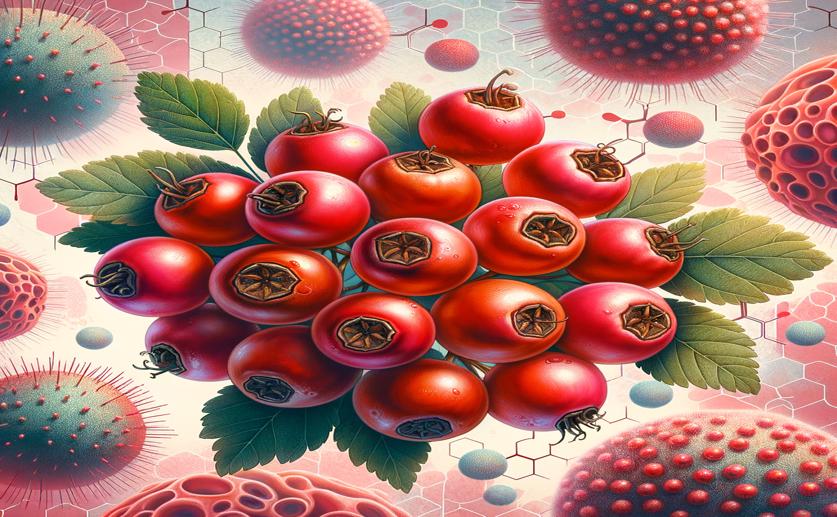
Hawthorn Berry Compounds Boost Immune Cells' Defense Signals
Jenn Hoskins
17th March, 2024

Image Source: Natural Science News, 2024
Key Findings
- A study from China found a hawthorn fruit extract boosts immune cell activity
- The extract, AF2, increases important immune signals, aiding inflammation control
- AF2 works by activating a specific immune pathway via a cell surface receptor
References
Main Study
1) Hawthorn Fruit (Crataegus spp.) Polysaccharides Exhibit Immunomodulatory Activity on Macrophages via TLR4/NF-κB Signaling Activation.
Published 15th March, 2024
https://doi.org/10.1007/s11130-024-01160-3
Related Studies
2) Crataegus pinnatifida polysaccharide alleviates colitis via modulation of gut microbiota and SCFAs metabolism.
3) Influence of glycosyl composition on the immunological activity of pectin and pectin-derived oligosaccharide.
4) Structures and immunomodulatory activity of one galactose- and arabinose-rich polysaccharide from Sambucus adnata.



 6th March, 2024 | Jenn Hoskins
6th March, 2024 | Jenn Hoskins